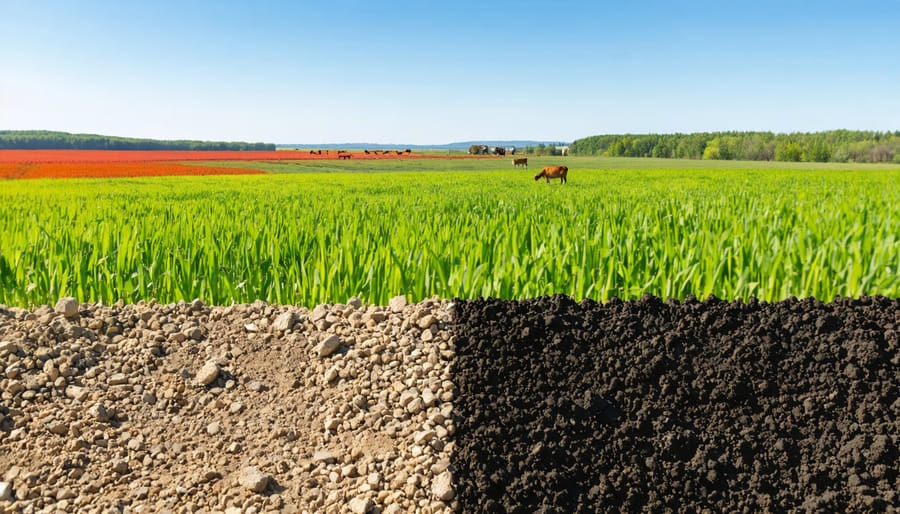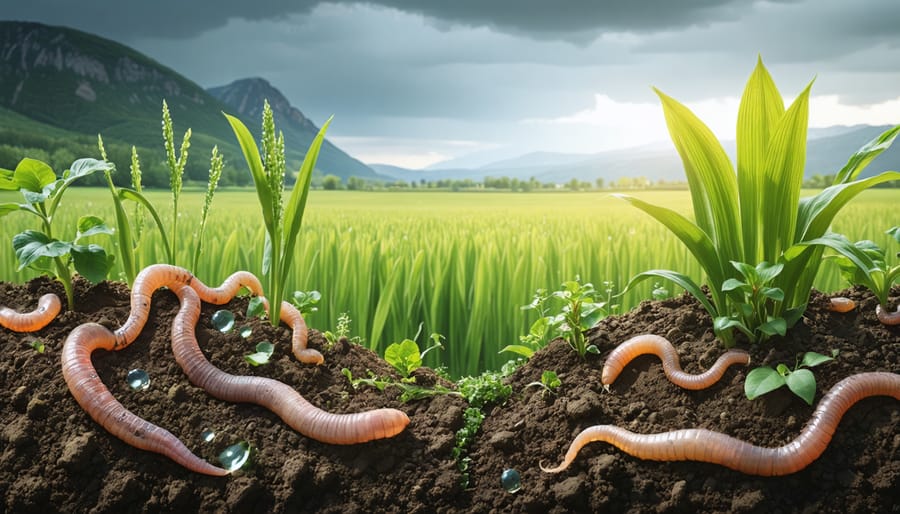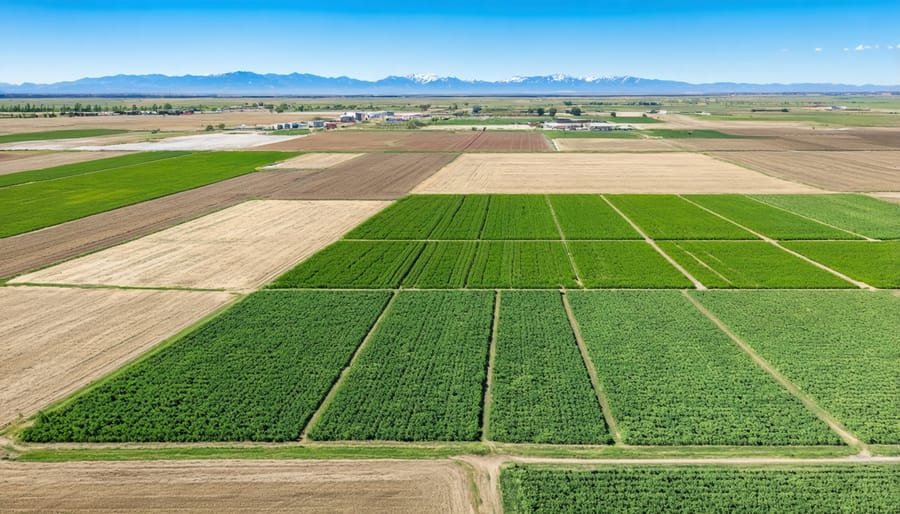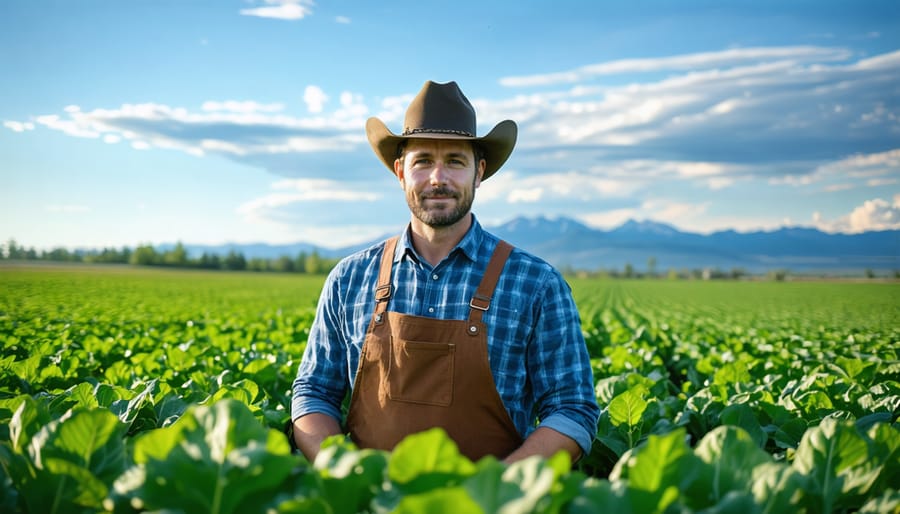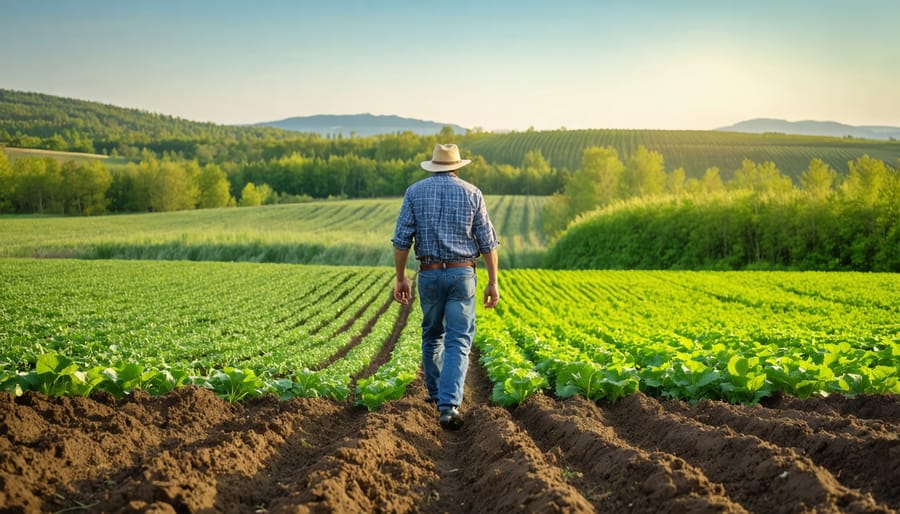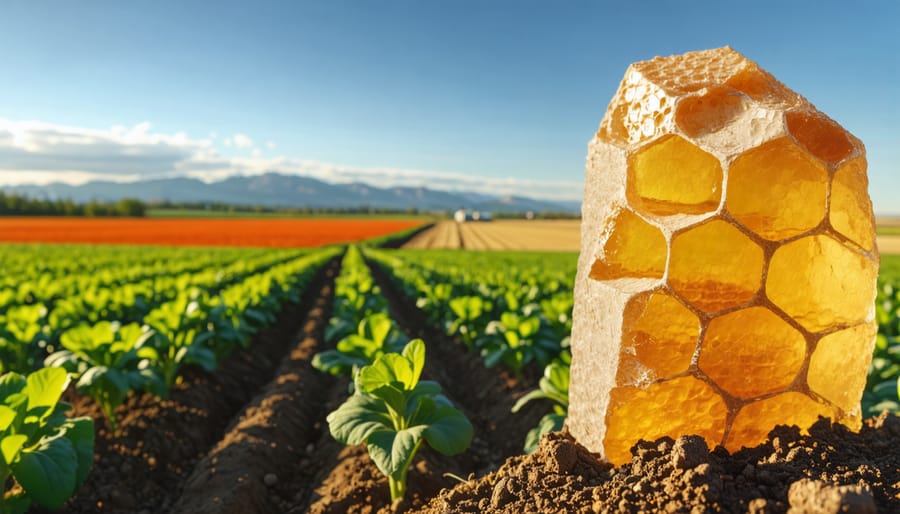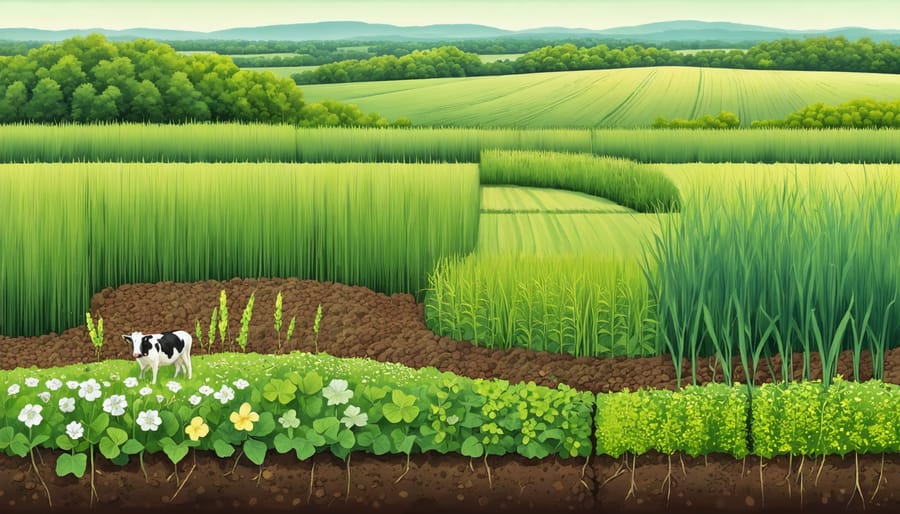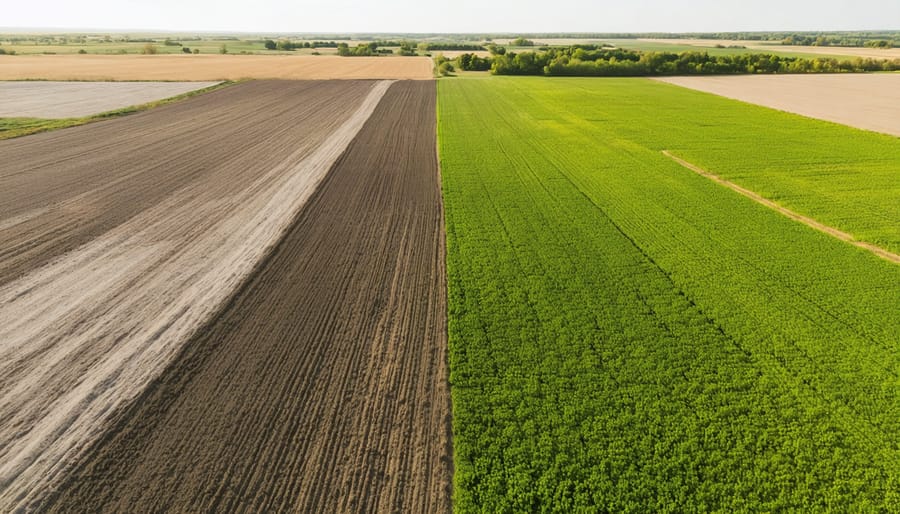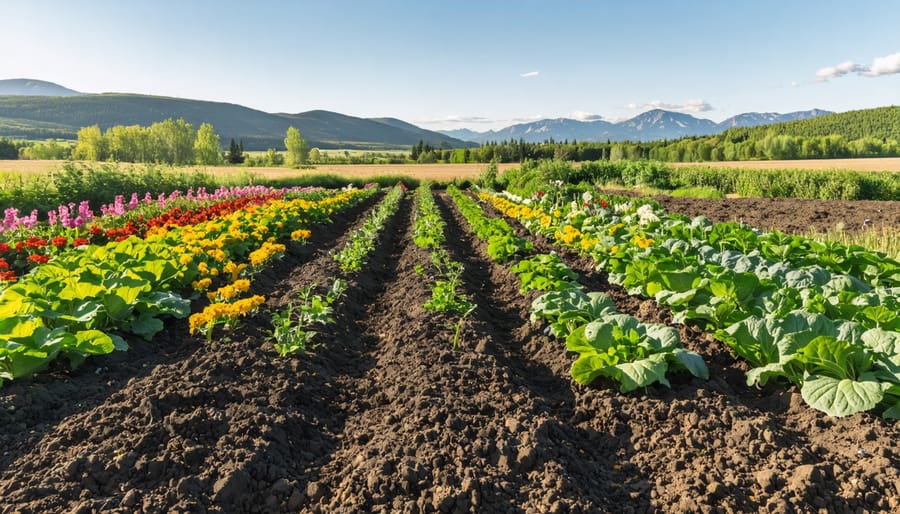What is Vegan Organic Soil?
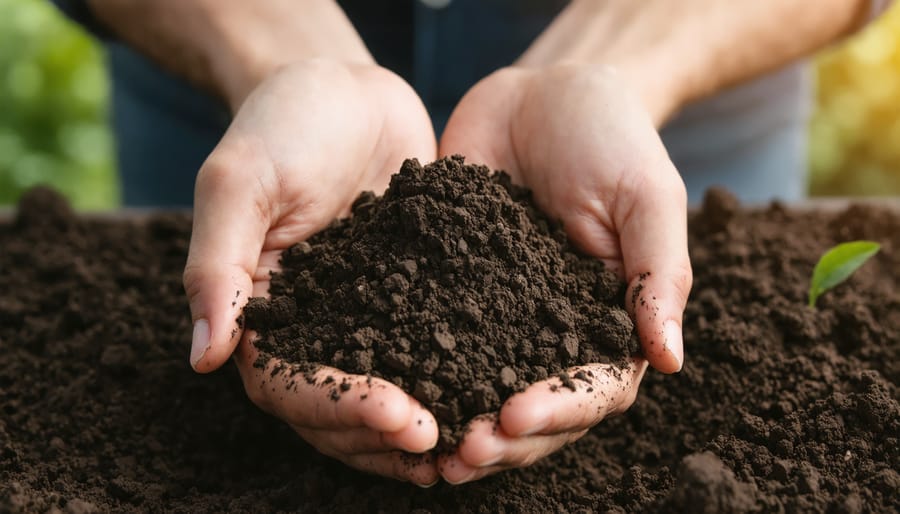
Key Components
The key components of vegan organic soil include a blend of plant-based materials that nourish the soil and support healthy plant growth. Compost, made from decomposed plant matter, serves as the foundation, providing essential nutrients and improving soil structure. Peat moss or coconut coir enhances water retention and aeration, while perlite or vermiculite improves drainage and root development. Organic fertilizers like alfalfa meal, kelp meal, and rock dust supply essential macro and micronutrients. Beneficial microorganisms, such as mycorrhizal fungi and rhizobacteria, are often added to promote nutrient uptake and disease resistance. By carefully selecting and combining these ingredients, vegan organic soil creates a balanced and nurturing environment for plants to thrive, without relying on animal-based inputs. This approach aligns with the principles of sustainable agriculture and supports the growth of healthy, nutrient-dense crops while maintaining soil health and biodiversity.
Benefits for Plant Health
Vegan organic soil provides numerous benefits for plant health, promoting vigorous growth and enhanced disease resistance. By fostering a diverse and balanced microbial ecosystem within the soil, plants can access essential nutrients more effectively, leading to stronger root systems and overall vitality. The absence of animal-based inputs reduces the risk of pathogen introduction, creating a more resilient growing environment. Vegan organic soil also improves soil structure, increasing water retention and aeration, which further supports plant health. The use of plant-based composts and green manures enriches the soil with vital nutrients, such as nitrogen, phosphorus, and potassium, ensuring optimal plant nutrition. Additionally, the practice of cover cropping and crop rotation, common in vegan organic farming, helps suppress weeds and break pest cycles, minimizing the need for chemical interventions. By prioritizing plant health through vegan organic soil management, farmers can cultivate thriving, disease-resistant crops while maintaining ecological balance.
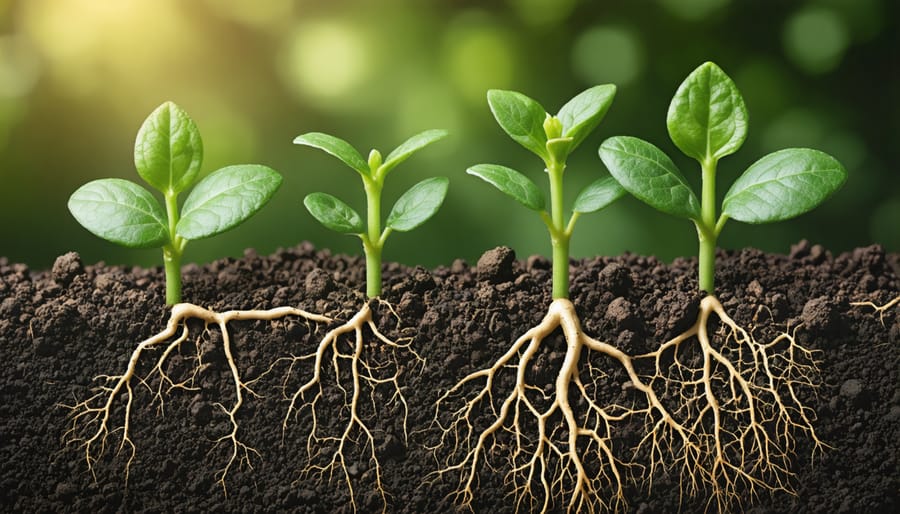
Environmental Impact
Reducing Carbon Footprint
Vegan organic soil plays a vital role in reducing the carbon footprint of agriculture. By eliminating the use of animal-based fertilizers and relying on plant-based composts, green manures, and cover crops, vegan organic farming practices minimize greenhouse gas emissions associated with livestock production. According to a recent study, adopting vegan organic methods can reduce the carbon footprint of crop production by up to 50% compared to conventional farming. This significant reduction in carbon emissions is achieved through the use of renewable resources, improved soil health, and enhanced carbon sequestration in the soil. By prioritizing soil fertility and biodiversity, vegan organic farming creates a more resilient and sustainable agricultural system that actively contributes to mitigating climate change. As more farmers in Alberta and across Canada embrace these practices, the collective impact on reducing carbon consumption in agriculture can be substantial. Transitioning to vegan organic soil management not only benefits the environment but also supports farmers in adapting to the challenges posed by a changing climate while maintaining productive and profitable operations.
Improving Soil Health
Vegan organic soil is a powerful tool for improving soil health and promoting sustainable agriculture. By eschewing animal-based inputs and focusing on plant-based amendments, this approach fosters a thriving soil ecosystem. The addition of organic matter, such as compost and cover crops, enhances soil structure by creating a network of pores that allow for better water retention and aeration. This improved structure also facilitates root growth, enabling plants to access nutrients more efficiently. Moreover, vegan organic practices promote nutrient cycling by supporting diverse microbial communities that break down organic matter and release essential nutrients back into the soil. By prioritizing soil health, vegan organic farming not only benefits individual crops but also contributes to the long-term resilience and productivity of agricultural systems. As Canadian farmers, particularly those in the Alberta region, face the challenges of a changing climate and increasing demands on their land, adopting vegan organic soil management techniques can help ensure the sustainability of their operations for generations to come.
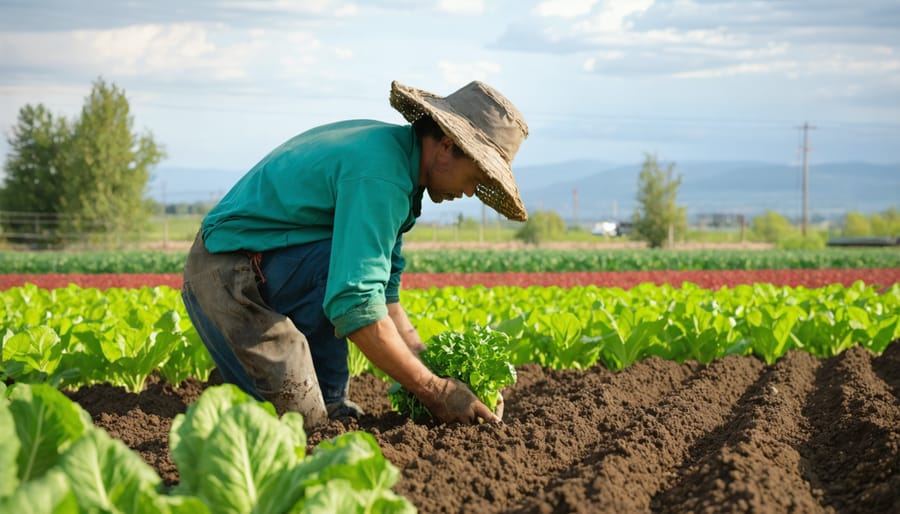
Implementing Vegan Organic Soil in Alberta
Sourcing Materials
Finding the necessary components for creating vegan organic soil mixes is crucial for successful implementation. Many of these materials can be sourced locally in Alberta, supporting the community and reducing transportation costs. Compost is a key ingredient and can be obtained from municipal composting programs or created on-farm using plant-based waste. Wood chips and sawdust are often available from local tree service companies or sawmills. Coconut coir, a sustainable alternative to peat moss, can be purchased from garden centers or hydroponic suppliers. Other amendments like rock dust, greensand, and kelp meal are available through organic gardening suppliers or agricultural cooperatives. Networking with fellow farmers and joining local agricultural organizations can provide valuable insights into sourcing materials specific to your region. By prioritizing local and sustainable sourcing, Canadian farmers can create high-quality vegan organic soil mixes while supporting their communities and reducing their environmental impact.
DIY Recipes
Here are two simple recipes for making your own vegan organic soil at home or on the farm:
1. Basic Vegan Compost Mix Combine equal parts of peat moss, coconut coir, and vermiculite in a large container. Add a generous amount of homemade vegan compost, about 30% of the total volume. Mix in 1 cup of organic alfalfa meal, 1 cup of green sand, and 1/2 cup of rock dust per 20 liters of soil mix. Thoroughly blend all ingredients and moisten with water until evenly damp but not soggy.
2. Enhanced Vegan Potting Soil Start with a base of 50% peat moss and 50% perlite. Incorporate 2 cups of vegan compost per 10 liters of soil mix. Enhance the blend with 1 cup of glacial rock dust, 1 cup of green sand, 1 cup of neem meal, and 1/2 cup of kelp meal. Mix all ingredients well and add water gradually, stirring until the soil is consistently moist throughout.
Feel free to adjust these recipes based on available materials and specific plant needs. Remember to use only plant-based ingredients and avoid any animal-derived products to maintain the vegan nature of your organic soil. Happy gardening!
Expert Advice
Experts in the field of sustainable agriculture have praised the benefits of vegan organic soil for its ability to support healthy plant growth while minimizing environmental impact. Dr. Sarah Thompson, a soil scientist at the University of Alberta, notes that “vegan organic soil promotes microbial diversity, which is essential for nutrient cycling and disease suppression.” Successful case studies in Alberta demonstrate the effectiveness of this approach. John and Mary Smith, owners of Green Acres Farm near Edmonton, have been using vegan organic soil for the past five years. They report higher yields, improved crop quality, and reduced input costs compared to conventional methods. “Our plants are thriving, and we feel good about the positive impact we’re having on the land,” says John. These examples highlight the potential for vegan organic soil to revolutionize sustainable farming practices in Alberta and beyond, offering a promising solution for farmers seeking to optimize their operations while prioritizing environmental stewardship.
Conclusion
In conclusion, vegan organic soil offers a promising solution for Canadian farmers seeking to adopt more sustainable and environmentally friendly practices. By harnessing the power of plant-based amendments and natural processes, vegan organic soil can help to build healthy, resilient soil ecosystems that support robust crop growth while sequestering carbon and reducing reliance on synthetic inputs.
As we’ve seen, the benefits of vegan organic soil extend beyond just plant health. By embracing this sustainable, climate-friendly approach, farmers can play a vital role in mitigating climate change, conserving water resources, and promoting biodiversity. Moreover, vegan organic soil aligns with the growing consumer demand for ethical and environmentally responsible food production.
For farmers in Alberta and across Canada, the transition to vegan organic soil may require some initial adjustments and learning. However, the long-term rewards – both for individual farm operations and for the broader agricultural community – make this approach well worth considering. By working together, sharing knowledge, and embracing innovation, we can build a more resilient, sustainable, and vibrant agricultural sector that nourishes both people and the planet.


